What Are The Pros And Cons Of Pursuing Bachelor’s Degrees?
Many are stating that your future career does not require that piece of paper you offered years of your life and thousands of dollars. Online courses, boot camps, certifications, and most especially, entrepreneurship! Years have passed by and various ideas, such as but not limited to those mentioned, are trying to be the replacement for bachelor’s degrees. Let’s dive into the pros and cons of bachelor’s degrees and why they’re still in demand.
What is a Bachelor’s or College Degree?
A Bachelor’s Degree is a post-secondary academic degree that typically takes four years of full-time study to complete. It is the first level of higher education and is offered by colleges and universities. The degree can be awarded in a wide range of fields including arts, sciences, social sciences, and professional programs.

The curriculum is designed to provide college students with a broad foundation in the chosen field of study, while also requires students to complete general education courses, either held on a college campus or through online learning, in subjects such as mathematics and natural humanities, and social sciences.
Upon completion of a Bachelor’s degree, graduates are typically prepared for entry-level positions in their field of study or can pursue further education at the graduate level.
Pros of Pursuing a Bachelor’s Degree
There are a lot of pros and cons of bachelor’s degrees, but let’s first check the pros.
Better Employment Opportunities
College graduates usually have more and better employment opportunities for several reasons. First, many employers require a college degree as a minimum qualification for certain jobs, such as those in finance, healthcare, and education. By earning a college degree, graduates are more likely to meet the basic qualifications for a wide range of jobs.
Second, college graduates typically develop a range of skills and knowledge that are highly valued by employers. They often have strong communication, critical thinking, and problem-solving skills, as well as specialized knowledge in their field of study.

A Taste of Independence
Pursuing a college degree can be an exciting and challenging experience that offers students a taste of independence. For many students, college is the first time they are away from home and responsible for managing their own lives.
One way that students gain independence in college is by managing their own schedules. Unlike high school, college courses often have more flexible schedules, and students are responsible for managing their own time and keeping track of deadlines. So much more freedom, however, requires students to be self-disciplined and develop time management skills.
Allows Students to Explore Career Options
College is an excellent opportunity for students to explore a wide range of career options. Many college programs offer courses and internships that allow students to gain hands-on experience in different fields, which can help them determine their interests and strengths. Additionally, the college provides access to career centers, job fairs, and networking events that can expose students to a variety of career paths and industries.
College also allows students to take a variety of courses outside their major, which can help them discover new interests and develop new skills.

Gives You Time to Gain Work Experience
One of the benefits of earning a college degree is that it provides students with the opportunity to gain work experience while they are still in school. Many colleges and universities offer internships, co-op programs, and other work-study opportunities that allow students to gain hands-on experience in their field of study. This experience can be invaluable when it comes time to enter the job market, as it can help students build their resumes, develop new skills, and make important connections with potential employers.
In addition, earning a college degree can also give students the flexibility to pursue part-time or full-time work opportunities while they are in school. Many students work part-time or full-time jobs to help pay for their education or gain work experience in their field.
Gain High-Level Transferable Skills
College is an excellent place to gain high-level transferable skills that can be used in a variety of different industries and professions. These skills are highly valued by employers and can give graduates a significant advantage in the job market.
One of the primary transferable skills that students gain in college is critical thinking. College courses require students to analyze complex information, evaluate arguments, and make informed decisions. This skill is highly transferable and can be applied to a variety of different situations in the workplace.
Colleges Provide Networking Value

Colleges provide valuable networking opportunities for students that can help them build relationships and find job opportunities after graduation. While in college, students have the chance to meet professors, alumni, and other students who can provide guidance, support, and connections.
One way that a school can provide networking opportunities is through career centers. Many colleges have career centers that offer services such as resume building, job search assistance, and networking events. These events bring together students, alumni, and employers, providing a chance for students to meet potential employers and learn about different career paths.
Opportunity to Pursue a Master’s Degree
Pursuing a Master’s degree after you attended college is a great way to enhance your career prospects and increase your earning potential. A Master’s degree provides you with specialized knowledge and skills that can help you stand out in the job market.
One of the main benefits of pursuing a Master’s degree is that it can lead to better job opportunities. Many employers prefer candidates with advanced degrees, as they demonstrate a higher level of expertise in a particular field. In addition, having a Master’s degree can open up opportunities for higher-level positions with more responsibility and better pay.
Great Jobs You Can Get With a College Degree
Medical Doctor
A Medical Doctor, or MD, is a healthcare professional who is responsible for diagnosing and treating illnesses and injuries. They work with patients of all ages and backgrounds, providing medical care and advice to help them live healthy lives.
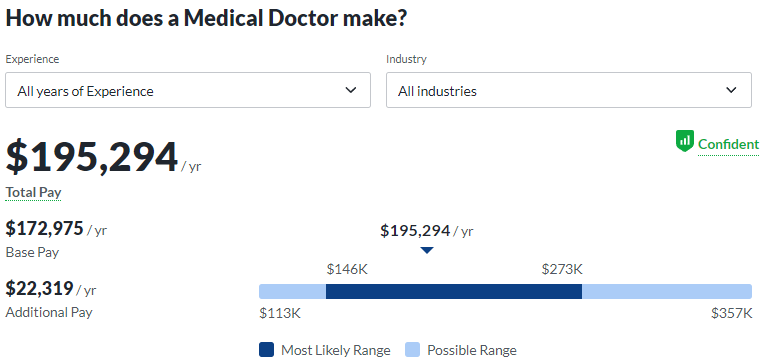
Medical doctors earn an average of $195,294 per year. That’s a hefty sum well deserved by the people who are mainly tasked with saving lives.
Lawyer
A lawyer is a professional who is trained to provide legal advice and represent clients in legal matters. Their responsibilities include researching and interpreting laws, negotiating on behalf of clients, drafting legal documents such as contracts and wills, and representing clients in court. Lawyers can specialize in different areas of law, such as criminal law, family law, or corporate law, and work in various settings, including private practice, government agencies, or non-profit organizations.
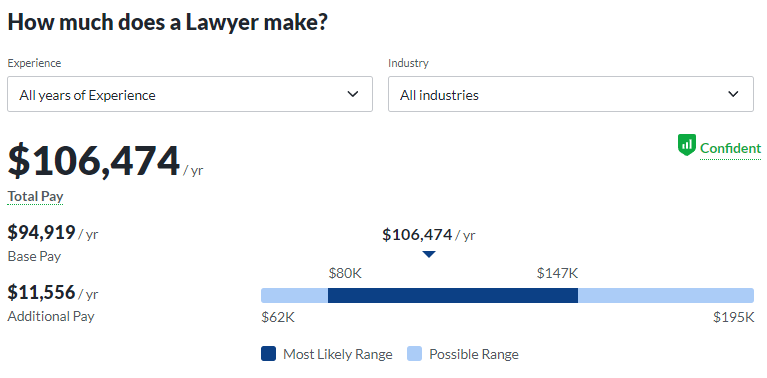
With an average annual salary of $106,474 per year, lawyers are paid decently for a very strenuous and critical job!
Investment Banker
An investment banker is a financial professional who provides advice to clients on financial transactions, such as mergers and acquisitions, initial public offerings, or debt offerings. They work with companies, governments, and other organizations to help them raise capital, manage risks, and grow their business.
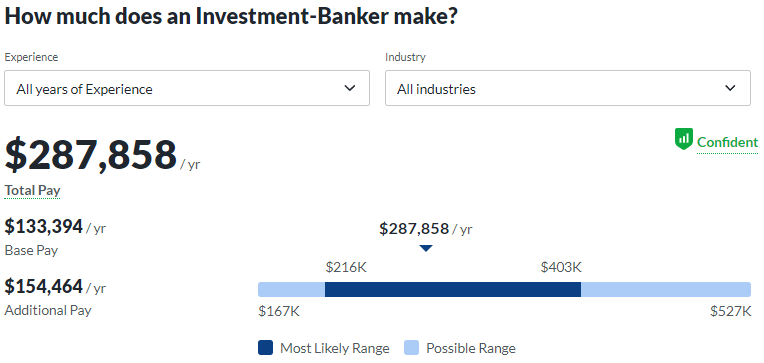
Investment bankers earn a large average sum of $287,858 per year in compensation for their analytical and critical thinking day in and day out. I mean, most of you have seen movies about wall street, right?
Here’s a video about the 8 highest paying bachelor degrees:
Cons of Pursuing a Bachelor’s Degree
Learning or Job Preparations Aren’t Guaranteed
While college degrees are often viewed as essential for career success and personal growth, they do not necessarily guarantee learning or job preparation. Despite the high cost of tuition, some students may not get the education and skills they need to succeed in their chosen career path.
One reason for this is that college, and even school curriculums as a whole, vary widely in quality and relevance. Some courses may not be practical or directly related to a student’s chosen field, while others may be outdated or ineffective in preparing students for the workforce.
Workplace Benefits Aren’t Guaranteed

While a college degree is often viewed as a key to unlocking better job opportunities and higher salaries, it is no guarantee of workplace benefits. Despite the cost and effort of obtaining a degree, some graduates may find themselves in jobs that do not offer comprehensive benefits packages.
One reason for this is that not all employers offer the same level of benefits to their employees. Some companies may offer a range of benefits, such as health insurance, retirement plans, and paid time off, while others may offer only a basic benefits package or none at all. This can be particularly challenging for graduates who are starting their careers and may not have a lot of negotiating power.
College Degrees Can Become Obsolete
While pursuing a college degree can be a significant investment in one’s education and career, there is no guarantee that the degree program will remain relevant or provide opportunities for graduates. In some cases, a college degree program may become obsolete if there are few or no job opportunities available in the related field.
This can happen for several reasons, such as changes in the job market, advancements in technology, or shifts in consumer demand. For example, a degree program in a particular industry may become obsolete if that industry undergoes significant changes or declines over time.
Student Debt
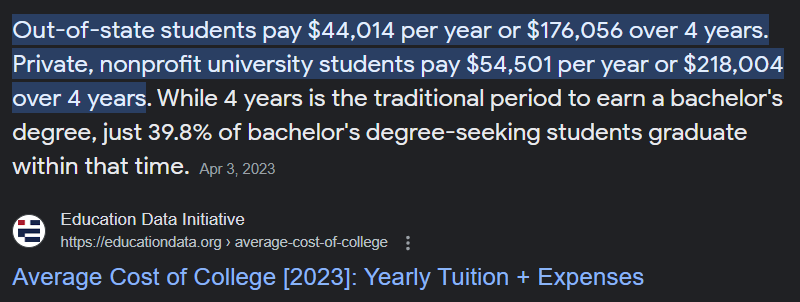
One of the major concerns for college students and graduates is the issue of student debt. While borrowing money to pay for education can be a sound investment in one’s future, it is important to understand that student debt may not be treated the same way as other types of consumer debt in terms of borrower protection and bankruptcy.
Unlike other types of consumer debt, such as credit card debt or personal loans, student debt is generally not dischargeable in bankruptcy. This means that even if a borrower files for bankruptcy, they will still be required to repay their student loans. Additionally, there may be fewer options for reducing or restructuring student loan debt compared to other types of consumer debt.
A Lot of Successful People Don’t Have Bachelor’s Degrees
While pursuing a college degree can be a valuable investment in one’s education and career, it is important to recognize that success is not limited to those who hold degrees or have college experience. In fact, many people have achieved great success in their careers without a college education or formal training.
People like Bill Gates, Steve Jobs, Mark Zuckerberg, and more dropped out of school and still made it big in life! Like “My net worth is around hundreds of millions” big.
Jobs Aren’t Guaranteed
One common misconception about pursuing a college degree is that it guarantees college grads a well-paying and fulfilling job upon graduation. The reality is that this is not always the case, and many college graduates find themselves struggling to find a job in their field or settling for positions that do not require a college degree.
This can be due to a variety of factors, including a competitive job market, a lack of relevant work experience, or a mismatch between the skills and knowledge gained through school education and the skills and knowledge required for certain jobs. In addition, some industries may be oversaturated with qualified candidates, leading to a high level of competition for available positions.
Trade Professions Can Sometimes be a Better Option
For many young adults, pursuing a trade profession may be a better option than attending college. Learning a trade profession provides hands-on, practical training in a specific skill set and can lead to well-paying, stable careers.
Trade professions where you can learn valuable skills, such as welding, plumbing, electrical work, and construction, are often in high demand and provide opportunities for advancement and entrepreneurship. Additionally, trade schools and apprenticeships tend to be more affordable than the traditional school systems, and many offer on-the-job training and paid apprenticeships, which can help to reduce student debt.
Total Cost
The total cost of going to college is not limited to tuition and fees. Another significant cost is the opportunity cost of not working while attending college. Many students attend college full-time and, as a result, are unable to work full-time or work at all. This means that they are missing out on opportunities to earn money and gain work experience.
The cost of missing out on work opportunities can be substantial, especially considering that the average college degree takes four to six years to complete. During this time, a student could have been working and earning a salary, which could have helped offset the costs of tuition and other expenses associated with attending college.
Great Jobs You Can Get Without a College Degree
Tech Salesperson
A Tech Salesperson is someone who sells technology products to businesses or individuals. They work for technology companies, and their responsibilities include researching potential clients, contacting them to promote and sell products, and negotiating deals. They often work on commission, so they have a strong incentive to close deals and generate sales. They need to be knowledgeable about the products they’re selling, as well as the industry they work in.
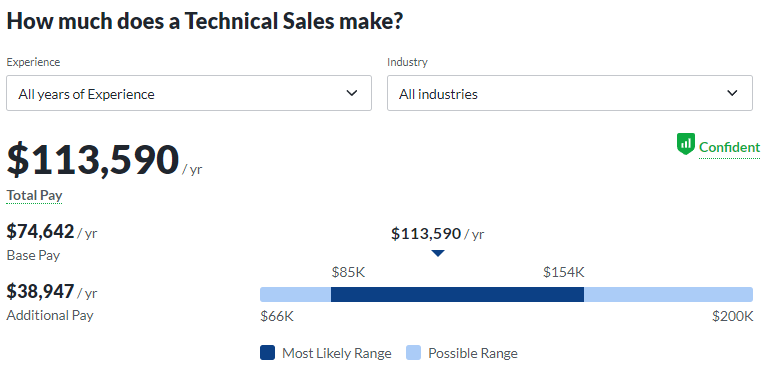
These professionals in the field of tech sales earn an average of $113,590 per year! That’s a big catch for a very modern job.
Digital Marketing Manager
A Digital Marketing Manager is someone who oversees a company’s online marketing efforts, including social media, email campaigns, search engine optimization, and digital advertising. They work to create and execute marketing strategies that will help their company reach its target audience and achieve its business goals. They analyze data and metrics to evaluate the effectiveness of marketing campaigns and make adjustments as needed to ensure that their company is getting the best possible return on investment.
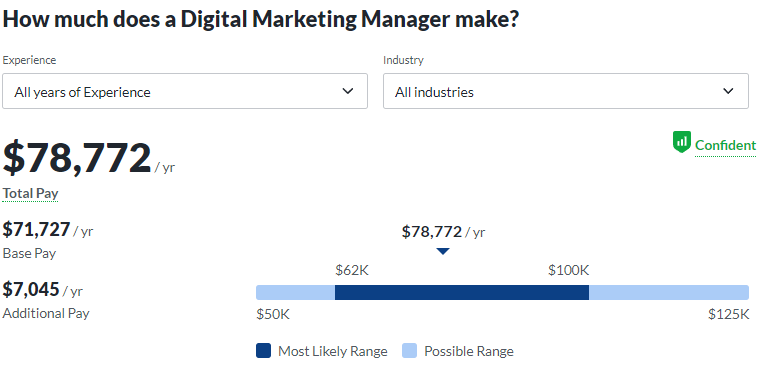
For a job that is most likely remote and highly fulfilling, digital marketing managers earn an average annual salary of $78,772. Of course, that amount can become larger with the right company and position!
Entrepreneur
An Entrepreneur is someone who starts their own business or takes a leadership role in an existing business. They’re responsible for identifying opportunities, taking risks, and making decisions that will help their company succeed. Entrepreneurs need to be able to manage finances, develop business plans, and build relationships with customers, suppliers, and employees. They need to be creative, flexible, and willing to put in long hours to achieve their goals.
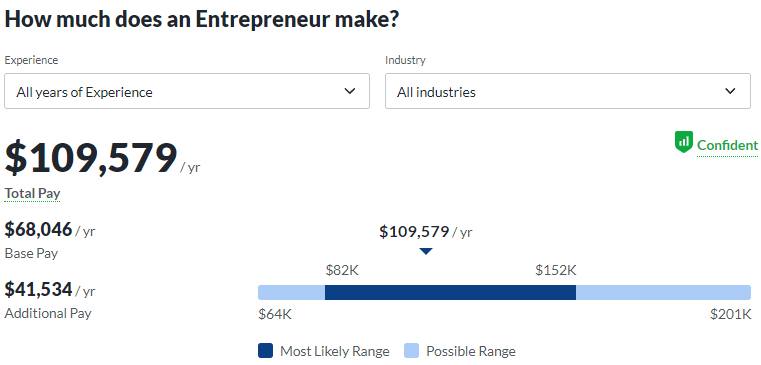
According to Glassdoor.com, entrepreneurs earn $109,579 per year! But let’s be honest here, have you seen the net worth of entrepreneurs like Andrew Carnegie, Henry Ford, Oprah Winfrey, etc.? Winning big in entrepreneurship is literally winning in life!

Conclusion About Pros and Cons of Bachelor’s Degrees
At the end of the day, some jobs require a college degree and some don’t. Some people are capable of handling the financial burden of going to a college environment and some people aren’t. Some people dream of jobs that require you to be a college graduate, while some dream of positions and careers that do not necessarily require you at least four years of studying while still earning big!
The blessing that we, people of this modern world have, is the option to join these modern jobs that do not require you to go to college. This option, just like the option of going to college, does not ensure success because successful people come from various types of origin stories, but all of them have one thing in common, they never gave up! We just have to weigh the pros and cons of bachelor’s degrees before jumping right into one.

… [Trackback]
[…] Read More here to that Topic: shanehummus.com/college-degrees/pros-and-cons-of-bachelors-degree/ […]
… [Trackback]
[…] Find More to that Topic: shanehummus.com/college-degrees/pros-and-cons-of-bachelors-degree/ […]
… [Trackback]
[…] Find More to that Topic: shanehummus.com/college-degrees/pros-and-cons-of-bachelors-degree/ […]
… [Trackback]
[…] Here you will find 83220 more Info on that Topic: shanehummus.com/college-degrees/pros-and-cons-of-bachelors-degree/ […]
… [Trackback]
[…] There you will find 4564 more Info to that Topic: shanehummus.com/college-degrees/pros-and-cons-of-bachelors-degree/ […]
… [Trackback]
[…] Find More on to that Topic: shanehummus.com/college-degrees/pros-and-cons-of-bachelors-degree/ […]
… [Trackback]
[…] Info to that Topic: shanehummus.com/college-degrees/pros-and-cons-of-bachelors-degree/ […]
… [Trackback]
[…] Here you can find 9933 more Information on that Topic: shanehummus.com/college-degrees/pros-and-cons-of-bachelors-degree/ […]
… [Trackback]
[…] Find More Information here on that Topic: shanehummus.com/college-degrees/pros-and-cons-of-bachelors-degree/ […]
… [Trackback]
[…] Read More on that Topic: shanehummus.com/college-degrees/pros-and-cons-of-bachelors-degree/ […]
… [Trackback]
[…] Read More Info here on that Topic: shanehummus.com/college-degrees/pros-and-cons-of-bachelors-degree/ […]
… [Trackback]
[…] Here you will find 73988 more Information on that Topic: shanehummus.com/college-degrees/pros-and-cons-of-bachelors-degree/ […]